Discover New York's must-see icons with local favourites, giving you a whirlwind taste of the city that never sleeps.
Melbourne hotspots for South Korean K-culture and food
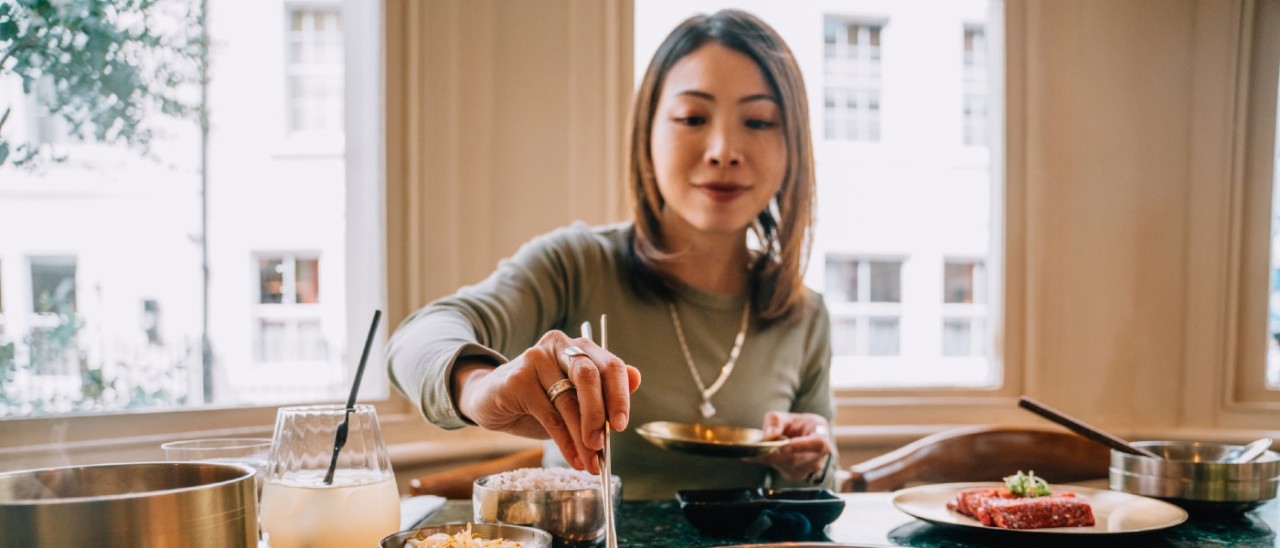
From cutting-edge cars and the infectious beats of K-pop to captivating K-dramas and delectable cuisine, South Korean phenomena are making waves in Melbourne and Australia, and beyond.
The 'K-wave' (Korean wave) or popular spread of South Korean culture has been globally influential since the turn of the 21st century: so much so that the terms Korean wave and hallyu ('wave/flow of Korea') were even added to the Oxford English Dictionary in 2021.
What started with a few cult TV shows and catchy choruses has become a full-blown lifestyle shift: we're driving Korean cars, tapping Korean phones, lining up for Korean barbecue and fried chicken, trying taekwondo and bingeing K-dramas.
South Korea is now a popular travel destination alongside Japan in East Asia, as tourists who are in love with the country's catchy tunes, tasty cuisine and popular technology make plans to travel the nation's sub-tropical islands, high-tech cities, ancient Buddhist temples and coastal fishing villages.
Here's a tour of the Korean trends Australia has embraced. Plus, RACV Members save on tours and cruises to South Korea.
Experiencing South Korea: food, cars, K-pop and K-drama
Hyundai and Kia
A decade ago, buying Korean often meant choosing value over prestige. Today, Hyundai and Kia sit comfortably among Australia's best-selling car brands, propelled by sharp design, long warranties and tech-rich cabins that feel a class above their price tags.
Hyundai and Kia vehicles were traditionally recognised as economical and reliable transportation, both are now leading brands standing shoulder-to-shoulder with Japanese and European rivals in Australian garages.
In the first half of 2025, Kia ranks fourth in Australian new car sales with 40,750 cars sold; Hyundai ranks fifth, with 38,948 cars sold. The Hyundai Kona (#1 selling small SUV in Australia) and Kia Sportage (#4 best-selling medium SUV in Australia) both made it into the top 10 new cars sold in Australia overall.
In addition, the Hyundai i30 was the third best-selling small car in Australia, while Hyundai's Tucson Hybrid and Kona Hybrid were in the top five best-selling hybrid cars in Australia. The Kia Sorento was the fourth best-selling large SUV in Australia, and the Kia Picanto was the fifth best-selling small car.
Hyundai and Kia are also now leading brands in the global electrification race, with stellar EVs that are proving popular around the world. Just look at Kia's EV9, EV6, EV5 (#4 best-selling EV sold in Australia in the first half of 2025) and EV3; and Hyundai's Ioniq 6, Ioniq 5, Kona Electric and Inster.
Korean cuisine: KBBQ, kimchi, fried chicken and more
Korean cuisine has surged in popularity across Melbourne. But if you're after a truly authentic foodie experience, hop aboard a real food adventure in South Korea.
Popular Korean dishes
Korean barbeque (KBBQ) sees diners seated around gas or charcoal grills to grill their own meat. Common Korean BBQ cuts include bulgogi (thin-sliced marinated meat), galbi (beef short ribs), dak galbi (spicy marinated chicken) and samgyeopsal (pork belly). The meat is often wrapped in lettuce and dipped in condiments like ssamjang (spicy paste) before eating.
Other delicious Korean dishes include:
- bibimbap (mixed rice)
- gimbap (sushi-like rolls)
- kimchi (fermented cabbage)
- tteokbokki (spicy rice cakes)
- japchae (stir-fred sweet potato noodles)
- naengmyeon (cold buckwheat noodles)
- bokkeumbap (Korean-style fried rice)
- maekom-dak gangjeong (sweet and sour Korean fried chicken).
Pair Koran dishes with authentic drinks like soju (distilled liquor), makgeolli (rice wine) or Korean beer.
Koreatown precinct in Melbourne
Korean doesn't yet have a notable cultural food hub in Melbourne, but in recent years, the city moved to formalise a Koreatown precinct near Healeys Lane in the CBD. Here there are many Korean eateries, bars and supermarkets.
Popular Korean barbeque and hotpot restaurants in Melbourne CBD include Mansae, Hwadam, Yuk Gam, Ssam, Seven Star Pocha, and Guhng The Palace. Try Korean chicken at Sam Sam, Guljak Topokki Chicken, Gami Chicken, or Buza Chicken. After non-BBQ Korean restaurants? Joomak, Korea Town, Sinjeon, Spicy Korea, Korchi City, SOT Dining, Famil-Lee, Dosirock, Oppa Kitchen, and Paik's Noodle are all available in the CBD. For Korean desserts, head to Sulbing, Nimbo, Bing Chillin or Bingsoo. And for Korean brunches, sample Korea's famous fluffy sandwiches at Three Drops Cafe, The Butter Room or Lazy Morning.
A little further out, try Ten BBQ & Hotpot in Southbank; Seoul Garden Korean BBQ Buffet in Docklands; Hallah in North Melbourne; or Misty Pot Korean Grill Cafe and Bar in West Melbourne.
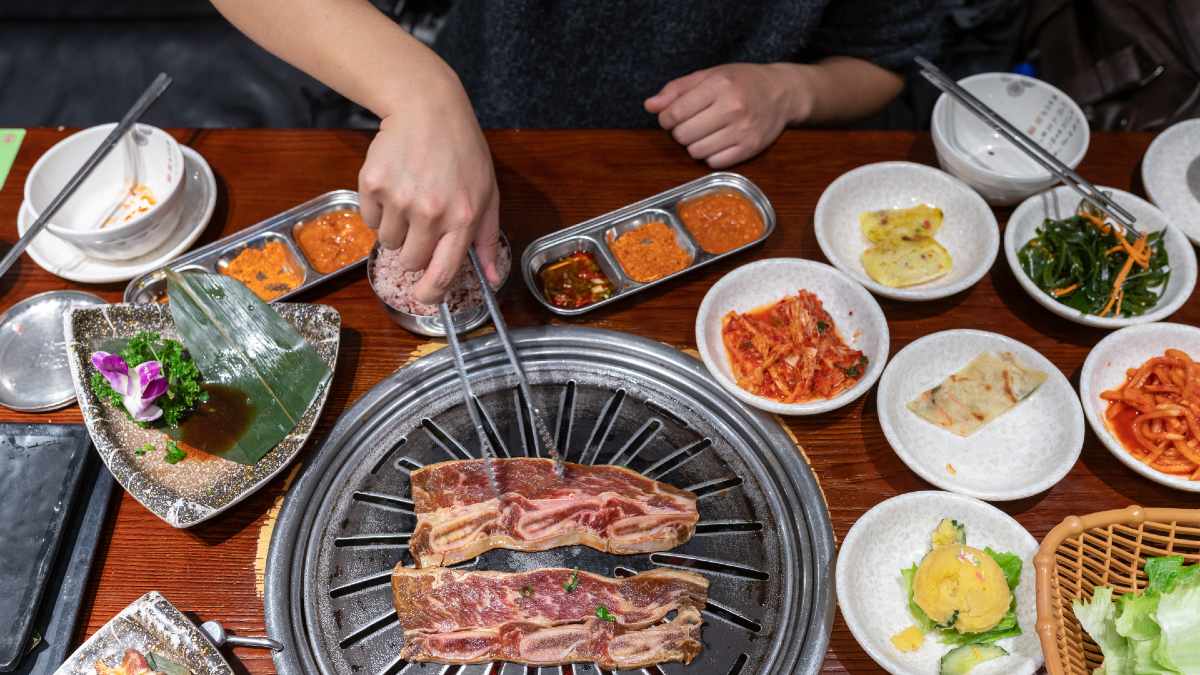
Korean BBQ is a dining experience that is loved across Melbourne. Image: Getty
K-pop: Gangnam Style, BTS and KPop Demon Hunters
K-pop – an umbrella term that covers Korean pop, hip-hop, rock and electronic music – has flooded the mainstream music market over the last decade. Global audiences are entranced by K-pop stars' coordinated dance moves, super-polished looks and pop culture references. Famous K-pop groups include BTS, BLACKPINK (starring Rosé, who was raised in Melbourne), BIGBANG, EXO, TWICE, Seventeen, Stray Kids and ATEEZ.
Australians can't seem to get enough: selling out K-pop touring shows, hosting the annual K-pop convention KCON, listening to Psy's viral Gangnam Style song enough for it to reach #1 on Australian charts, and millions of Australians following K-pop stars and bands on social media apps.
Netflix's recent smash-hit KPop Demon Hunters, which features the K-pop girl group HUNTR/X use their musical and martial powers to defeat supernatural demons, was so popular that it's now being cinematically released across Australia and New Zealand (complete with sing-along sessions).
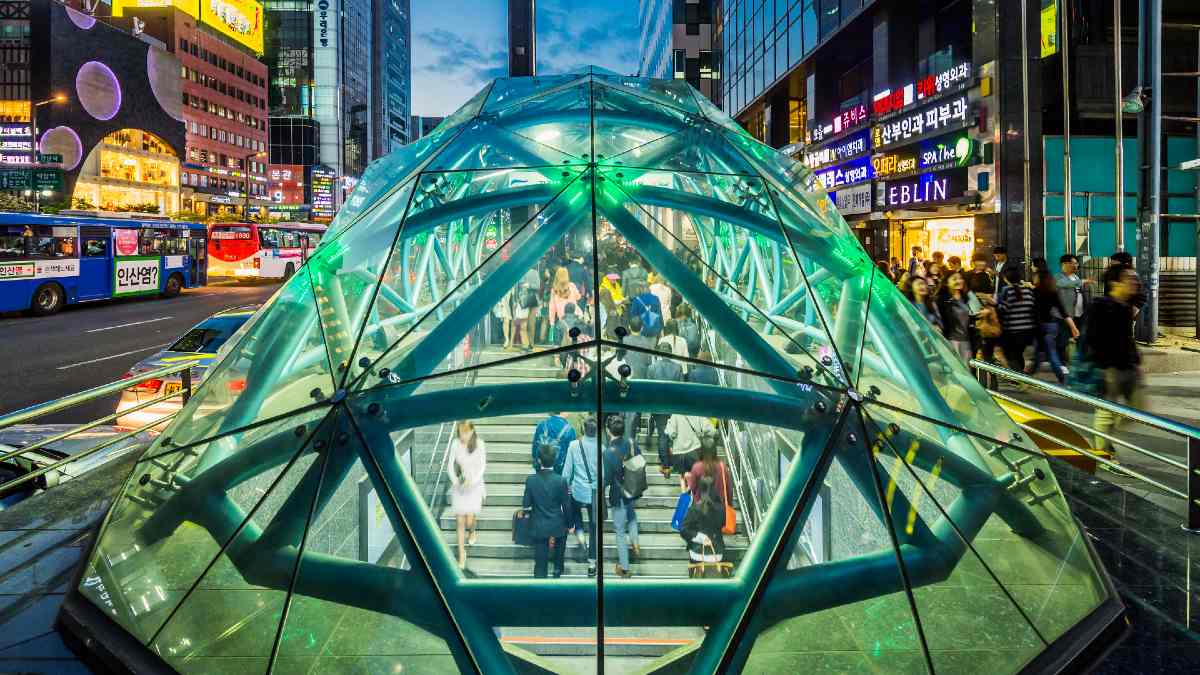
The eclectic Gangnam District in Seoul was spoofed in Psy's Gangnam Style global hit in 2012.
Taekwondo
Taekwondo is a popular Korean martial art that emphasises fast, agile kicks to the head and upper body. It's so popular in South Korea that most children take taekwondo lessons at some point for fitness, self-defence and mental strength. You can find many non-Koreans wearing a dobok (taekwondo uniform) to their taekwondo classes across the world.
Taekwondo is sometimes mistakenly attributed to Japan or China. In reality, taekwondo was developed during the 1940s and '50s by Korean martial artists with experience in Japanese karate, Chinese kung fu, and indigenous Korean martial arts like taekkyeon, subak and gwonbeop. Taekwondo remains the only Korean martial art that is an official Olympic sport and the sport is practiced by over 100 million people worldwide.
If you want to learn taekwondo yourself or enrol your kids, the martial art has centres and classes all around Melbourne. Australia even fielded a three-athlete taekwondo team at the Paris 2024 Olympic Games. International and domestic taekwondo events now regularly visit Australian shores, helping inspire the next generation.
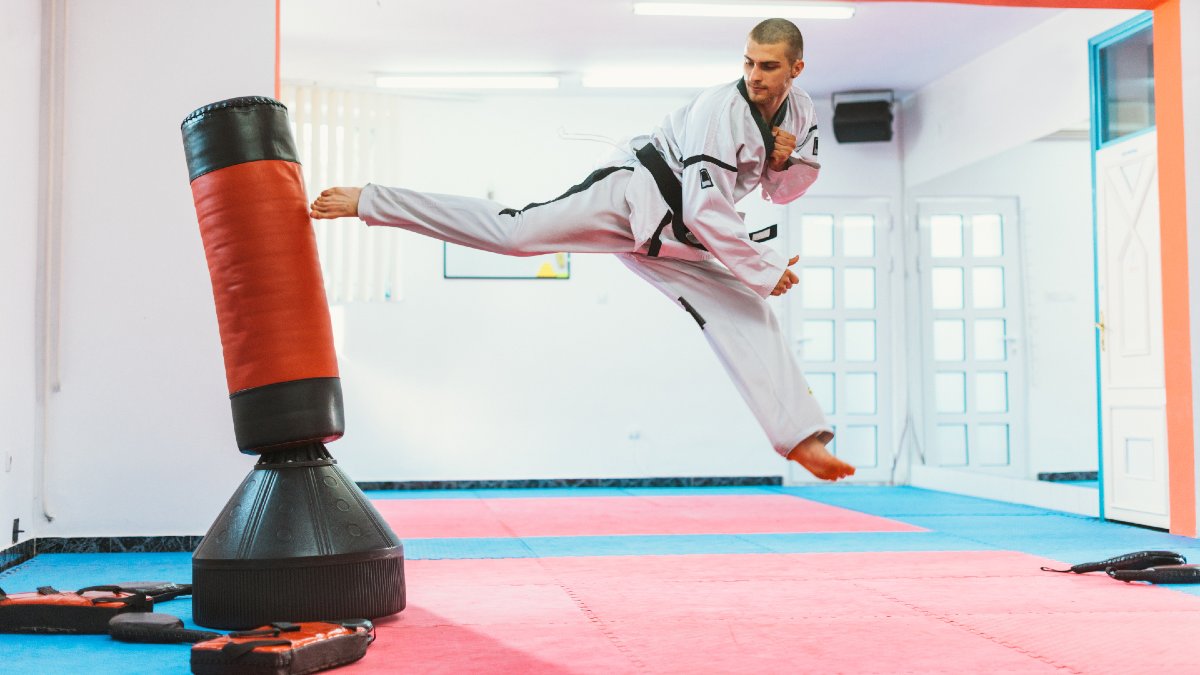
Taewkondo is popular in Melbourne and around the world. Image: Getty
K-dramas and Squid Game
Korean dramas, or K-dramas, are short-term TV shows with high-drama storylines, bingeable runtimes and fascinating portrayals of Korean fashion, culture and scenery.
The genre achieved massive fame worldwide with Netflix's Squid Game, a brutal survival drama. Spanning three chilling seasons, Squid Game revolves around a secret contest where players in dire financial straits compete in deadly children's games for the chance to win big. It quickly became Netflix's most-watched series of all time and has won numerous accolades and awards.
K-dramas are now so popular in Australia that Netflix Australia has an entire category dedicated to the genre. Particularly popular K-drama shows include Under the Queen's Umbrella, Bloodhounds, Extraordinary Attorney Woo, Descendants of the Sun, Strong Girl Bong-soon, All of Us Are Dead, and Crash Landing on You.
Korean movies are also increasingly popular, with the Busan International Film Festival drawing more crowds every year and particularly popular films airing on Netflix and other streaming services. The 2019 black comedy thriller Parasite proved particularly successful: it took in more than $1.9 million in Australian box office sales, making it the highest-grossing Korean film of all time in Australia. Other South Korean movie masterpieces include Okja, Oldboy, The Handmaiden and Train to Busan.
To experience Korean cinema for yourself, you can attend the Melbourne International Film Festival (MIFF) in August, the Korean Film Festival in Australia in September/October, or grab cheap movie tickets to cinemas showing Korean flicks.
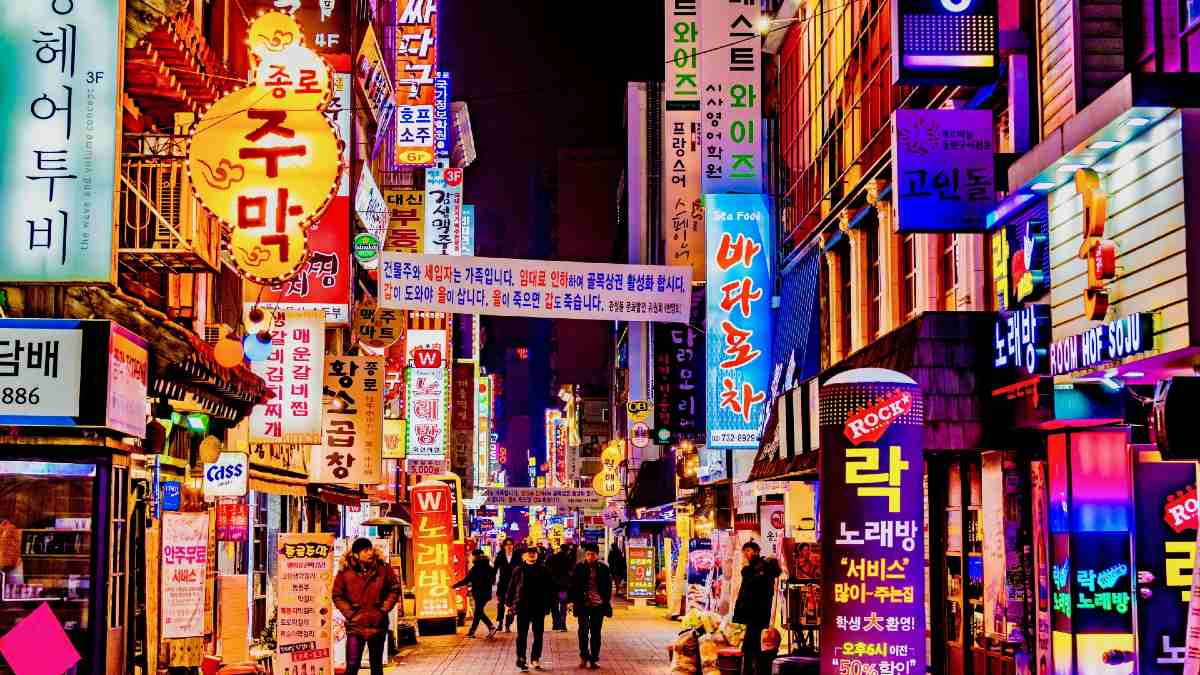
Interest in South Korean travel experiences has surged in recent years. Image: Getty
Samsung and home appliances
South Korea's leading export is electronics - and no wonder, considering that global powerhouse Samsung calls the country home. Looking around your home, you might notice the Samsung logo on your television, air conditioner, display monitor, refrigerator, dishwasher, printer, washing machine, clothes dryer, vacuum cleaner, and microwave, as well as your laptop, tablet or mobile phone.
If you're keen to explore South Korea, discover the tours and cruises available through RACV Travel & Experiences.


